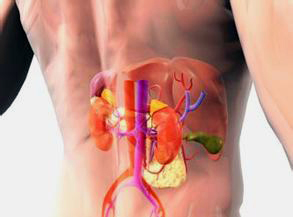 Chronic renal failure refers to the syndromes resulting from decreased renal function at the late stage of various types of chronic kidney diseases. It is clinically manifested as a series of toxic symptoms caused by water-electrolyte imbalance, acid and alkali disturbance as well as retention of toxic substances. In the light of the impairment of renal functions, the disease can be classified into four stages: stage of decreasing renal reserve capacity, compensation stage of renal insufficiency, decompensation stage of renal insufficiency (the stage of azotemia) and stage of uremia.
Chronic renal failure refers to the syndromes resulting from decreased renal function at the late stage of various types of chronic kidney diseases. It is clinically manifested as a series of toxic symptoms caused by water-electrolyte imbalance, acid and alkali disturbance as well as retention of toxic substances. In the light of the impairment of renal functions, the disease can be classified into four stages: stage of decreasing renal reserve capacity, compensation stage of renal insufficiency, decompensation stage of renal insufficiency (the stage of azotemia) and stage of uremia.
By its clinical manifestations, in TCM the disease pertains to "long bi" (retention of urine), "guan ge" (dysuria and constipation with frequent vomiting), "shui zhong" (edema) and "xu lao" (consumptive diseases). It is believed that deficiency of the spleen and kidneys is the principal cause of the disease, with other causes like seven emotional upsets, attack of exogenous pathogenic factors, improper diet, alcohol and sex addiction and overstrain. The pathogenic factors vary, which may include wind, dampness, heat, turbid pathogenic factors, blood stasis.
The impaired organs are the spleen and kidneys, often involving the lungs, liver and heart. The pathogenic feature of the disease is characterized by deficiency of healthy qi and excess of pathogenic factors. Deficiency of healthy qi is primarily manifested as deficiency of kidney Yang and spleen yang, deficiency of liver yin and kidney yin, deficiency of both qi and yin, deficiency of both yin and yang. Excess of pathogenic factors exhibits attack of exogenous pathogenic factors, retention of water within the body, damp heat, blood stasis, dampness, phlegm dampness, liver wind, etc.
Category of Renal Failure in TCM
Long bi (Retention of urine)
Guan ge (dysuria and constipation with frequent vomiting)
Shui zhong (edema)
Xu lao (consumptive diseases)